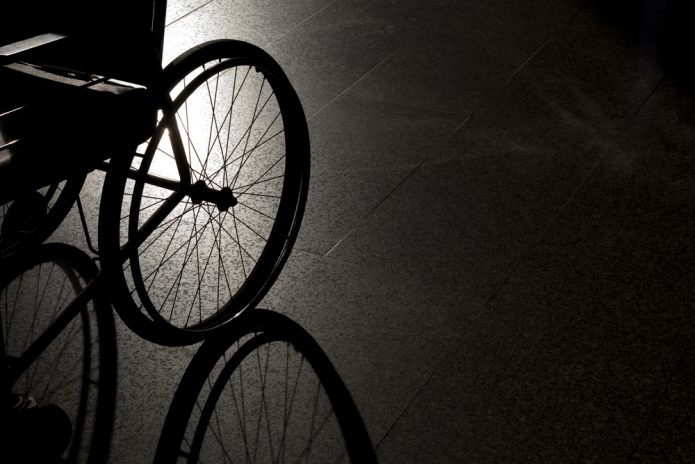No president’s budget in the modern era has slashed more funds from those most in need than the budget proposal recently put forward by Donald Trump. Not since the end of World War II have we experienced an administration so ruthless in its approach to people with disabilities and people of low and moderate income.
While the budget pushes a massive hike in military spending, it entails enormous cuts to domestic spending. Of those proposed slashes, the Center on Budget and Policy Priorities calculates, fully three-fifths are aimed at programs that help struggling families make ends meet — and, frankly, survive.
Between Trump’s 2018 budget proposal and the Obamacare repeal passed by the House, the administration’s looking to cut Medicaid, the Children’s Health Insurance Program, and the Supplemental Nutrition Assistance Program (also known as food stamps), along with Social Security Disability Insurance, Social Security Income, and other critical safety net programs by nearly $2.5 trillion over ten years.
Together, those targeted programs for low and moderate-income people constitute less than a quarter of all federal program spending — but absorb 60 percent of the proposed cuts. And where do the savings go? To wealthy people and corporations, in the form of tax cuts averaging $50,000 per millionaire, the Coalition on Human Needs says.
Particularly hard hit are children and adults with disabilities. Trump wants to slash $610 billion from Medicaid over the next decade — on top of the $800 billion the House wants to cut in repealing the Affordable Care Act. That will be devastating for people with disabilities who rely on that funding for programs that help them get care, afford assistive devices, and live independently.
“The president’s budget proposal is irresponsible and would be detrimental to many of the programs and services people with disabilities rely on,” says Kelly Buckland, who directs the National Council on Independent Living. “The programs that support our health, well-being, and independence have been targeted, with proposed funding for these programs being brought to unrealistic and dangerously low levels.”
The Center for American Progress’ Rebecca Vallas adds, “Many people rely on Medicaid for attendant care and services, home modifications, and in-home hospital grade equipment. Rather than needing to be in state-run institution, they get to live in a house with family or in their own apartment and be part of their community.”
That independence — and those community ties — are now at almost unprecedented risk. All the more so because the Republican health bill recently passed by the House would undermine protections for people with pre-existing conditions, making Medicaid an even more vital safety net even as it’s being cut to pieces.
Compounding the hit, Trump also seeks to slash federal special education spending for children with disabilities, along with big cuts to the U.S. Department of Labor’s Office of Disability Employment Policy and to funding for autism research and state developmental disabilities councils.
Finally, if Trump has his ruthless druthers, over the next ten years $70 billion will be yanked from the Social Security Disability Insurance (SSDI) program, which has long protected workers who become injured or disabled. SSDI serves almost nine million disabled workers and their nearly two million dependents. According to the Center for American Progress, for eight in ten injured and disabled Americans who receive SSDI, it is their main or only source of income.
The depth and breadth of the harm that would come to the most vulnerable in our society, to those least able to take the hits — even as those savings are handed over to those who already live luxurious lifestyles — would make this a country in which children and adults with disabilities are no longer welcome. The United States of America would become no country for those with disabilities.

